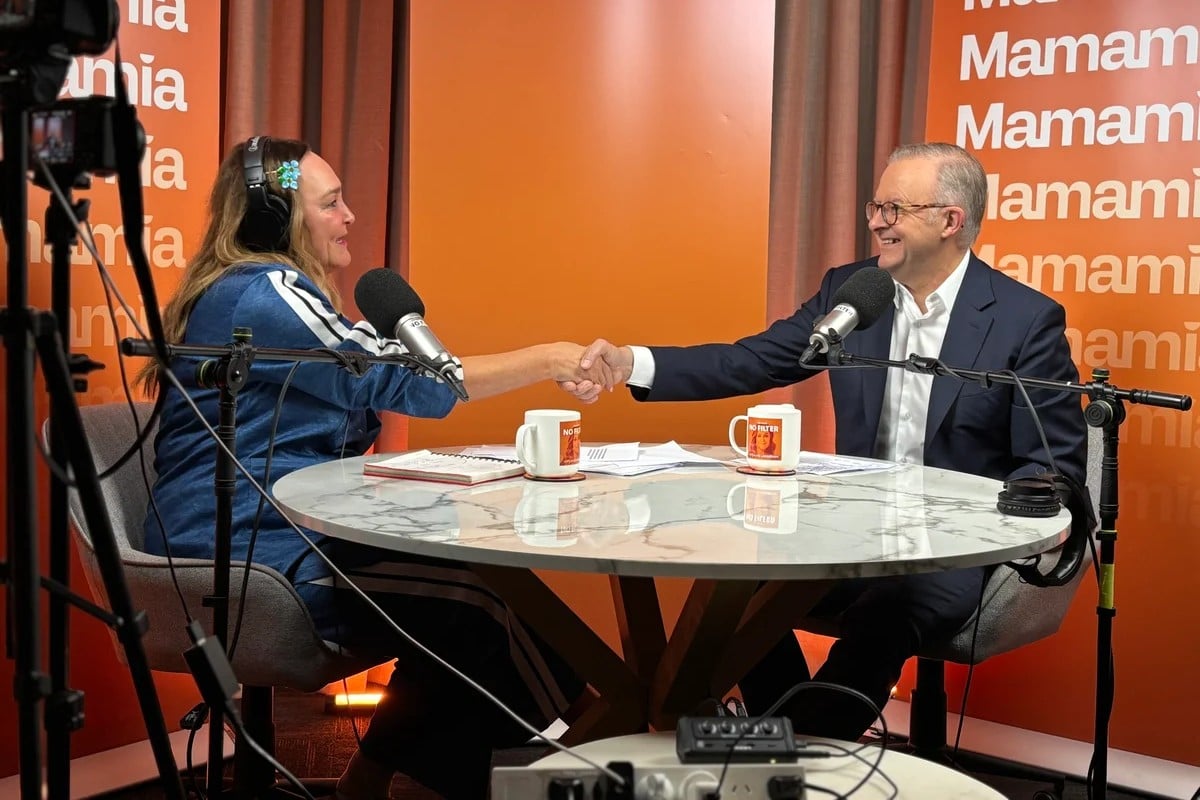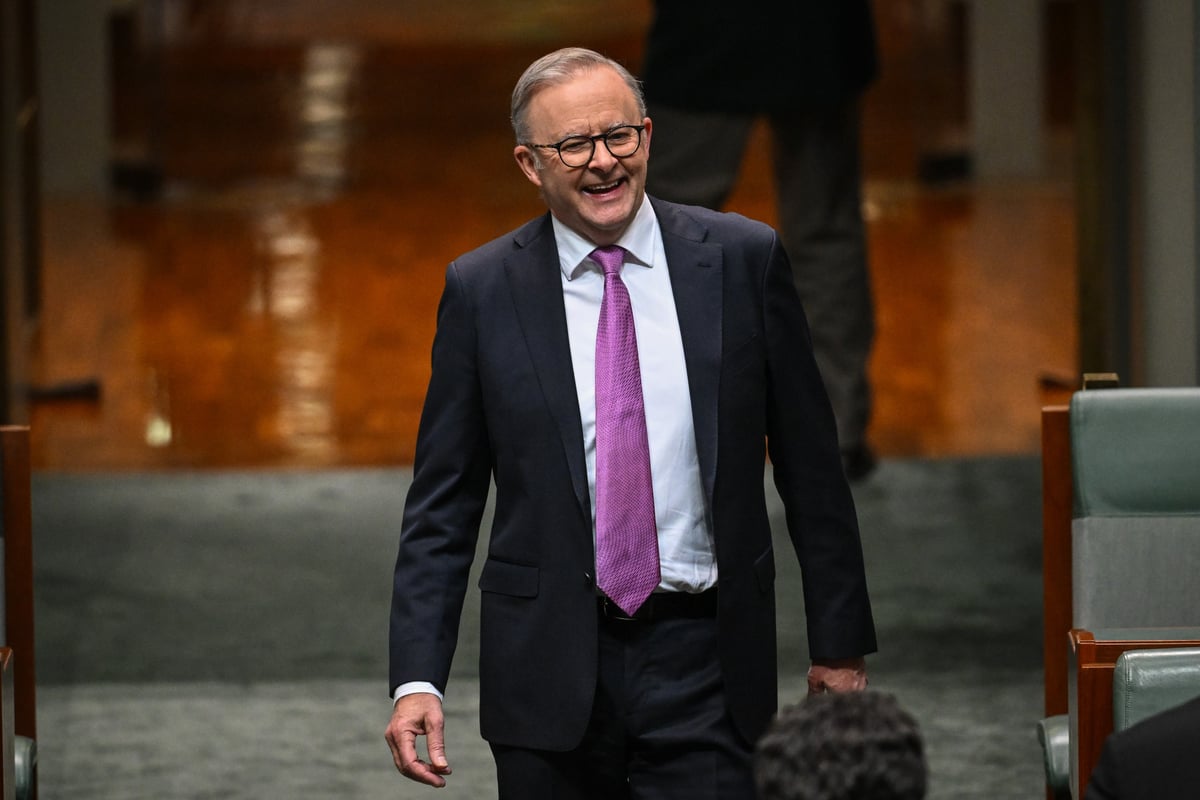
When Anthony Albanese became Prime Minister, his phone pinged with a message from a childhood mate saying she was in Canberra.
"Eight of them had come from across the country because their mate who grew up with them in public housing in Camperdown was becoming Prime Minister," Albanese told Mamamia's No Filter podcast. "They ended up coming to dinner at The Lodge that night. It was absolutely one of the best things that has ever happened to me, that feeling of connection with where I'd come from."
It's a story most of us know by heart — Albanese growing up in public housing in Sydney's inner-west, raised by a single mum on a disability pension.
But it's this connection to his roots, he tells us, that makes his campaign different.
"I want Australia to be the land of opportunity where your trajectory in life should not be dictated by your postcode of where you were born or the circumstances into which you were born," Albanese said.
We sat down with the PM to cut through the political spin. After all, eight in 10 of Mamamia's audience say they're the key decision-makers in their households. And with recent polling showing almost half of voters are still undecided, every vote counts.
Listen to Anthony Albanese on Mamamia's No Filter. Post continues below.
'We look like Australia. They look like a bunch of blokes.'
The PM's pitch to women is straightforward: economic equality is central to everything, not just a box to tick.





























































































